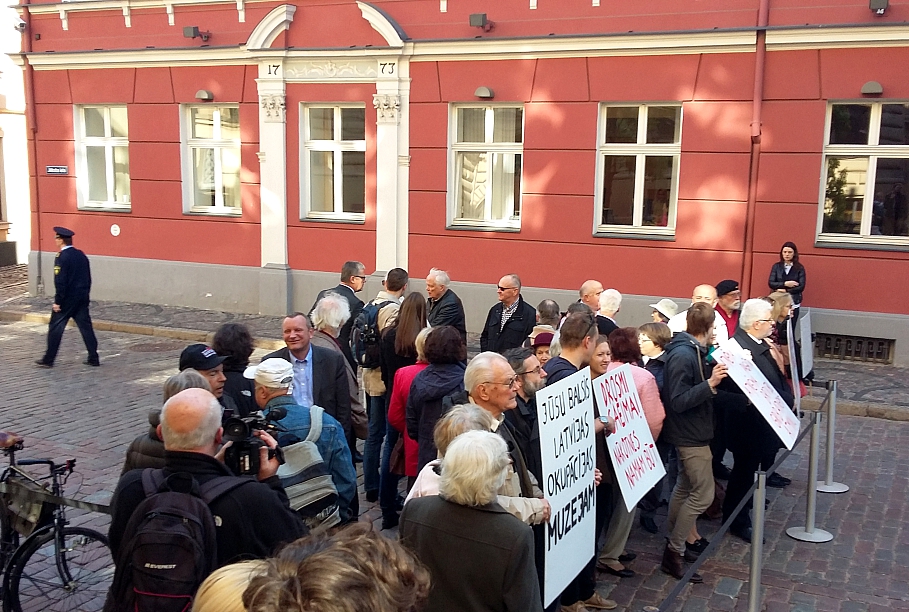The goal of the rally was to speed up the museum reconstruction, which has been delayed due to objections by the Rīga City Council for about a year now.
Protesters came with placards, like "They took away our past, our freedom, and now they want to take away our memory".
The attendees were mostly older people and several employees of the museum. The employees want the reconstruction to go ahead as, among other reasons, it would improve work conditions.
"In the old days people could be forced to work in wet basements. Now you can't do that, and that's why we need the annex, so that employees would have at least somewhat humane [work] conditions," one protester told Latvian Radio.
A year ago the museum annex plan was mostly a point of contention between architects. Some prefer the museum to remain as it is, while plans are in motion to add a white 'Future home' to the building.
The debates have taken on a political tinge, however, with some seeing the Riga Municipal Construction Board decision to reject the project as a political move by Harmony, which heads the Rīga City Council.
Lawmakers have undertaken granting the museum the status of a National Interest Object that could allow moving the project ahead.
Previously Culture Minister Dace Melbārde said that granting the museum a status of an object of national interest would ensure the reconstruction would be concluded by the centenary of Latvia in 2018.
The Museum of the Occupation of Latvia, built in 1971 to mark the 100th birthday of Lenin, is one of the most memorable historical buildings in Riga.
Built during the Soviet times, the museum started out as a building to commemorate red Latvian riflemen - Latvian soldiers who fought on the side of revolution during the communists' ascent to power in Tsarist Russia during WWI.
After the USSR collapsed, the museum started introducing visitors to the heritage of occupations by Soviet Russia, Nazi Germany, and then Soviet Russia again.


































